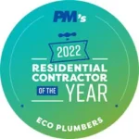Introduction
There’s a unique charm in older homes—the hardwood floors, timeless design, and character you just don’t see in newer builds. But behind that beauty often hides a major concern: an aging plumbing system. Corroded pipes, slow leaks, and worn connections can lead to serious trouble. If you’re living in or considering buying an older property, it’s smart to have it checked by expert plumbing services. It’s more than avoiding water damage—it’s about keeping your home, health, and wallet safe.
Plumbing Solutions for Homes With Aging Pipe Systems
1. Common Plumbing Issues in Older Homes
Many older homes still use galvanized steel, cast iron, or even lead pipes. These materials break down over time. Galvanized pipes, for instance, rust from the inside, leading to low water pressure and blockages. Cast iron pipes may crack with age. And lead pipes? Those pose a serious health risk. Signs of trouble often include discolored water, odd smells, frequent clogs, or slow drains. These issues are more than minor annoyances. They’re red flags that your pipe system may be failing. A licensed plumbing technician knows what to look for and can spot issues before they turn into disasters.
2. Repiping: When and Why It’s Needed
If the pipes in your home are more than 50 years old, there’s a good chance they need to be replaced. Repiping may sound like a major job—and it can be—but it’s often the safest, most cost-effective solution in the long run. Patching up small leaks or constantly unclogging old drains adds up quickly. Repiping typically involves swapping out the old material—whether it’s galvanized steel or lead—for safer, modern alternatives like PEX or copper. These newer materials are more durable, flexible, and safer. A plumber will walk you through your options and create a plan that fits your budget and your home’s needs.
3. Hidden Leaks and the Damage They Cause
Older pipes have a way of leaking silently behind walls or under floors. You may not even know there’s an issue until you notice water stains, mold, or that musty smell. Hidden leaks can destroy drywall, warp wood, and even weaken your home’s foundation. Professional plumbing solutions use leak detection tools to identify problems without ripping your home apart. With technology like thermal imaging and acoustic sensors, finding and fixing leaks has become faster and less invasive than ever.
4. Sewer Line Trouble in Aging Homes
Your home’s drain and sewer lines are also likely to suffer from years of use. Old clay or cast iron pipes are prone to root intrusion and cracking. If you’ve noticed frequent backups, gurgling drains, or foul odors, the sewer line might be the culprit. Experts often use cameras to inspect the full length of the line. From there, they can recommend repair methods like pipe bursting or trenchless pipe replacement. These methods save time and reduce digging around your home. The key is getting the problem looked at early, before sewage backups make your life miserable.
5. Upgrading Plumbing for Modern Appliances
Let’s face it—older homes weren’t built with dishwashers, high-efficiency washers, or tankless water heaters in mind. If you’re planning a remodel or adding new appliances, your old plumbing may not keep up with the demand. A skilled local plumber will assess your current system and determine if your pipes can handle the increased water pressure and usage. They may recommend larger lines or rerouting pipes to avoid future problems. If you’ve got dreams of a spa-style bathroom or a chef’s kitchen, updating the plumbing system is step one.
6. Water Quality Concerns and Solutions
In many cases, outdated piping can lead to poor water quality. Rust, sediment, and even lead can make their way into your taps. If your water smells metallic, tastes strange, or leaves stains on your fixtures, it’s time to test it. Plumbing technicians offer solutions ranging from simple filtration systems to whole-house water treatment setups. The right solution depends on your water source, your pipes, and your goals. Clean water isn’t a luxury—it’s a necessity.
7. Importance of Routine Maintenance
When dealing with older plumbing, a “fix it when it breaks” approach doesn’t cut it. Regular maintenance, like flushing the water heater, checking for corrosion, and inspecting valves, helps you catch small issues before they grow into big ones. Annual inspections from a reliable plumbing company give you peace of mind. They can track wear over time, recommend repairs, and extend the life of your pipe system. It’s like a wellness check-up for your home.
8. Hiring the Right Plumbing Professional
Older homes require technicians with experience, not guesswork. Look for companies familiar with historical properties. Ask about licensing, insurance, and specific experience with repiping, leak detection, and fixture upgrades. The right technician won’t push services you don’t need. They’ll talk through your options and help prioritize based on safety, cost, and long-term benefits. Trust and transparency go a long way when you’re dealing with the unknowns behind the drywall.
Old homes have character, but they also come with a set of challenges, especially when it comes to plumbing. Rusty pipes, hidden leaks, sewer line problems, and water quality concerns can all threaten the safety and comfort of your space. Professional plumbing services provide the tools, experience, and solutions you need to modernize your system without losing that historic charm. From full repiping to strategic upgrades, investing in your home’s plumbing is one of the smartest decisions you can make as a homeowner. It’s not just about convenience. It’s about protecting your health, your property, and your peace of mind.
Conclusion
Protect your older home with expert plumbing services from Eco Plumbers, Electricians, and HVAC Technicians. Call us at (855) 326-7586 today for reliable pipe upgrades, leak repairs, and long-term plumbing solutions.
📌 Need help fast? Eco Service Center offers expert plumbing, electrical & HVAC services near you—quick, reliable, and just a call away!












